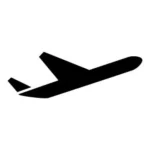Embarking on the journey to become a pilot is an exhilarating and rewarding endeavor. But before you take flight, it's essential to understand the path to obtaining a pilot license. Here's a comprehensive guide to help you navigate the licensing process.
**Types of Pilot Licenses**
The primary pilot's license is the Private Pilot Certificate (PPL), which allows you to fly for personal or recreational purposes. For commercial operations, you'll need to obtain a Commercial Pilot License (CPL). Other specialized licenses include Airline Transport Pilot (ATP) and Flight Instructor (CFI).
**Eligibility Requirements**
To qualify for a pilot's license, you must:
* Be at least 17 years old (16 for a student pilot certificate)
* Be a U.S. citizen or permanent resident
* Pass a medical examination
* Read, write, and speak English fluently
* Pass written and practical exams
**Training**
The path to obtaining a pilot's license involves extensive training. This includes ground school, flight instruction, and solo flights. Ground school covers topics such as aerodynamics, meteorology, and navigation. Flight instruction provides hands-on experience in aircraft operation. Solo flights are required to demonstrate your ability to fly independently.
**Licensing Process**
The licensing process typically involves the following steps:
1. **Obtain a student pilot certificate:** This allows you to begin flight training.
2. **Pass the written exam:** The Federal Aviation Administration (FAA) administers a written exam covering various aviation subjects.
3. **Complete flight training:** The required flight hours vary depending on the type of license sought.
4. **Pass the practical exam:** An FAA examiner evaluates your flying skills during a practical test.
5. **Receive your pilot's license:** Upon passing both exams and completing the required flight hours, you will be issued a pilot's license.
**Maintaining Your License**
To maintain your pilot's license, you must:
* Log a minimum number of flying hours annually
* Pass periodic medical examinations
* Complete recurrent training as required
**Benefits of a Pilot License**
Obtaining a pilot's license offers numerous benefits, including:
* The thrill of flying and exploring the skies
* Career opportunities in aviation
* Enhanced job prospects in various industries
* Personal growth and confidence
* Travel and adventure opportunities
Whether you dream of flying for recreation or pursuing a career in aviation, obtaining a pilot's license is a transformative experience that unlocks a world of possibilities. By understanding the requirements, training process, and licensing pathway, you can embark on your journey to conquer the skies.
